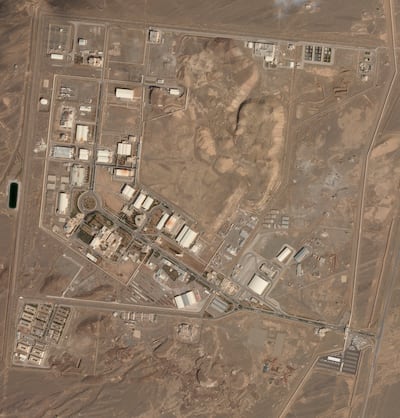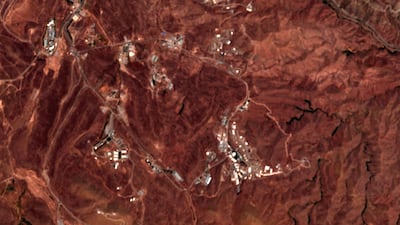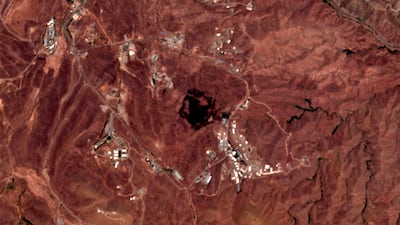Iran has agreed to resume talks on the 2015 Joint Comprehensive Plan of Action (JCPOA), Tehran and the EU said, after a months-long impasse.
Iranian Foreign Minister Hossein Amirabdollahian said he had a “long but positive meeting” with EU foreign policy chief Josep Borrell about the nuclear deal.
“We are prepared to resume talks in the coming days. What is important for Iran is to fully receive the economic benefits of the 2015 accord,” Mr Amirabdollahian said.
The Iranian official also said on Saturday that his country would not tolerate “provocative actions” against its nuclear programme by Israel, which opposes the deal.
Iran has blamed Israel for being behind attacks and sabotage operations against its nuclear sites and scientists, including an attack last year on Natanz underground nuclear site that damaged its centrifuges.
Two officials, one Iranian and one European, told Reuters before Mr Borrell's trip that “two issues including one on sanctions remained to be resolved”, comments that Iran's Foreign Ministry has neither confirmed nor denied.
“We agreed on resumption of negotiations between Iran and US in the coming days, facilitated by my team, to solve the last outstanding issues,” Mr Borrell said.
“And the coming days mean coming days. I mean, quickly, immediately.”

The deal was broken after former US president Donald Trump's unilateral withdrawal in 2018, raising tensions across the wider Middle East and sparking a series of attacks and incidents.
Talks have resumed since US President Joe Biden took office. They came close to reaching an agreement in Vienna in March but had stalled over a dispute on the US removal of Iran's Islamic Revolutionary Guard Corps (IRGC) from its list of foreign terrorist organisations.
The 2015 deal meant Tehran would limit its enrichment of uranium in exchange for the lifting of economic sanctions.
Western powers fear Iran is getting closer to being able to produce a nuclear bomb if it decided to. Iran says its nuclear intentions are entirely peaceful.
Iran's actions a 'rational responses to US unilateralism'
Ali Shamkhani, secretary of Iran's Supreme National Security Council, which makes the decisions in the nuclear talks, told Mr Borrell that Iran will further develop its nuclear programme until the West changes its “illegal behaviour”.
“Iran's retaliatory actions in the nuclear sector are merely legal and rational responses to US unilateralism and European inaction and will continue as long as the West's illegal practices are not changed,” Mr Shamkhani said, without elaborating.
Despite the imminent resumption of talks, Mr Borrell appeared to play down the possibility of a quick deal.
“I cannot predict … We are pushing for it. I appreciate the goodwill from the Iranian side. There is also goodwill from the American side,” Mr Borrell said in a news conference on an EU website.
“Talks between Iran, the US and the EU will not take place in Vienna because they will not be in the 4+1 format … they will probably take place somewhere closer to the Gulf and, more specifically, in a Gulf state,” Iranian media quoted Mr Borrell as saying.


